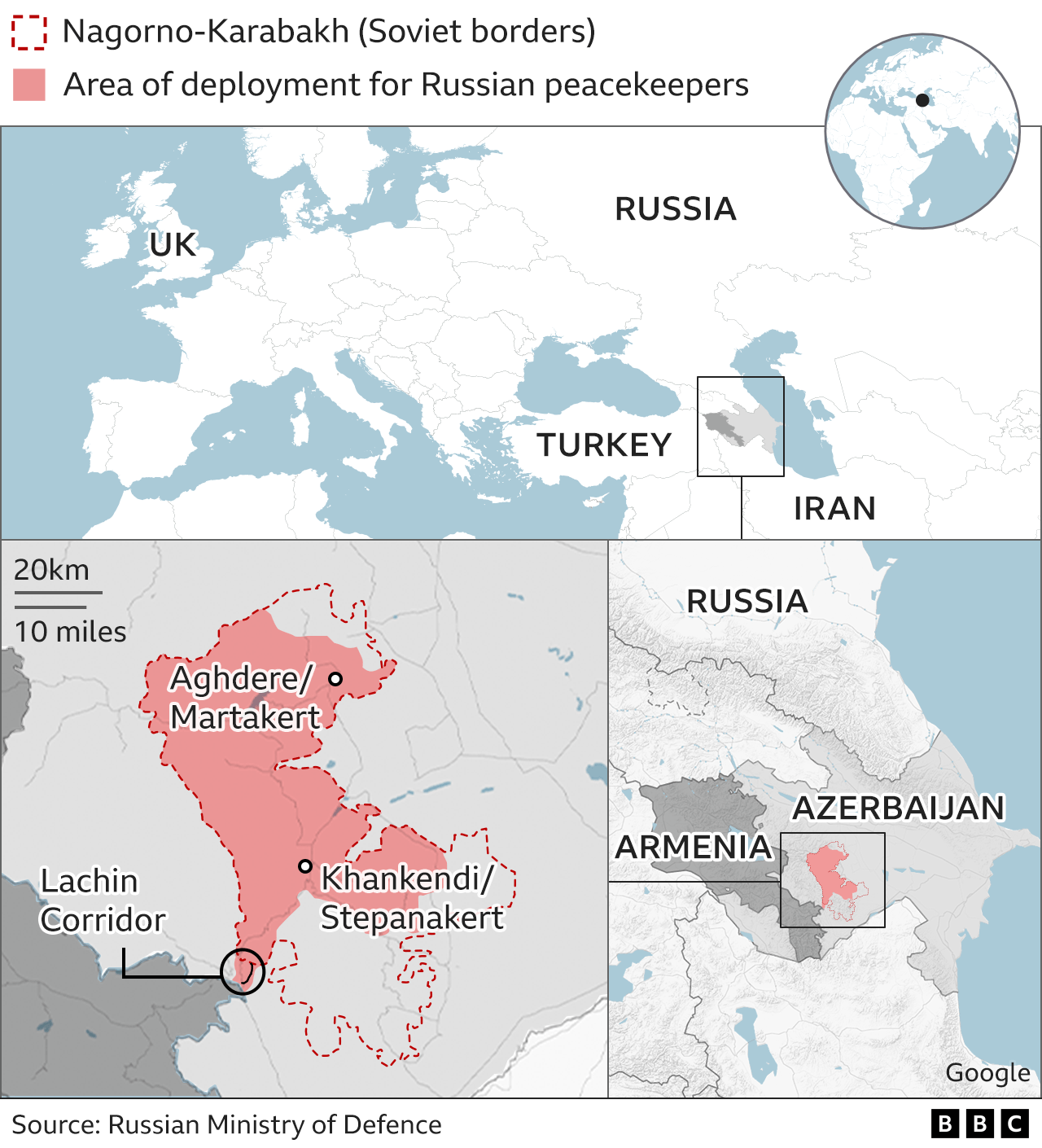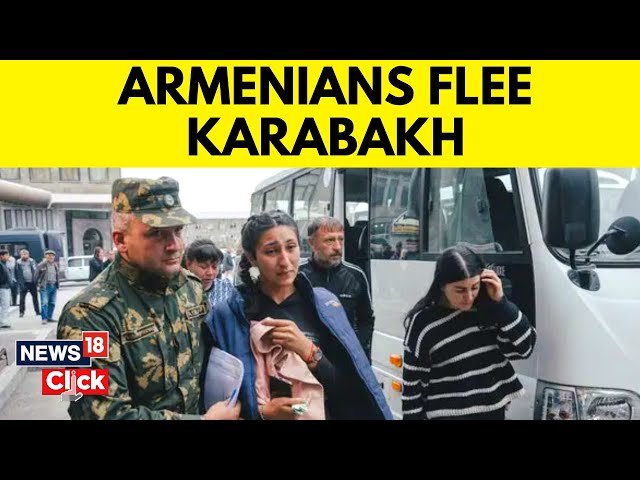
Days after fleeing Nagorno-Karabakh following Azerbaijan’s victory over the region, ethnic Armenians have arrived in Armenia. Redmond Shannon explains.
Armenia says 1,050 people have crossed into the country from Nagorno-Karabakh, days after the majority ethnic Armenian enclave was seized by Azerbaijan.
They entered after the government in Yerevan announced plans to move those made homeless by the fighting.
Azerbaijan retook the area inhabited by some 120,000 ethnic Armenians early this week and says it wants to re-integrate them as “equal citizens”.
But Armenia has warned they may face ethnic cleansing.
“As of 22:00 local time (18:00 GMT), 1,050 people entered Armenia from Nagorno-Karabakh,” the Armenian government said in a statement on Sunday.
It said many of them had already been provided with government-funded housing.
The Armenian separatist forces in the territory agreed to disarm on Wednesday, following a lightning Azerbaijani military offensive.
Armenia says it will help anyone leaving Nagorno-Karabakh – but has repeatedly said a mass exodus would be the fault of the Azerbaijani authorities.
In a TV address on Sunday, Prime Minister Nikol Pashinyan said many inside the enclave would “see expulsion from the homeland as the only way out” unless Azerbaijan provided “real living conditions” and “effective mechanisms of protection against ethnic cleansing”.
He repeated that his government was prepared to “lovingly welcome our brothers and sisters”.
But David Babayan, an adviser to Nagorno-Karabakh’s ethnic Armenian leader Samvel Shahramanyan, told Reuters he expected almost everyone to leave.
His people “do not want to live as part of Azerbaijan – 99.9% prefer to leave our historic lands”, he said.
“The fate of our poor people will go down in history as a disgrace and a shame for the Armenian people and for the whole civilized world,” he told Reuters.
“Those responsible for our fate will one day have to answer before God for their sins.”
Nagorno-Karabakh – a mountainous region in the South Caucasus – is recognised internationally as part of Azerbaijan, but has been controlled by ethnic Armenians for three decades.
The enclave has been supported by Armenia – but also by their ally, Russia, which has had hundreds of soldiers there for years.
Five Russian peacekeepers were killed – alongside at least 200 ethnic Armenians and dozens of Azerbaijani soldiers – as Azerbaijan’s army swept in last week.
On Sunday, Azerbaijan’s defence ministry said it had confiscated more military equipment including a large number of rockets, artillery shells, mines and ammunition.
Despite Azerbaijan’s public reassurances, there are ongoing fears about the residents of Nagorno-Karabakh, with only one aid delivery of 70 tonnes of food having been allowed through since separatists accepted a ceasefire and agreed to disarm.
Ethnic Armenian leaders say thousands are without food or shelter and sleeping in basements, school buildings or outside.
In his TV address, the Armenian prime minister also hinted that Russia had not come to its defence in the conflict.

His comments echoed criticism that Moscow had effectively handed Nagorno-Karabakh over to Azerbaijan – a charge Russia’s foreign minister has described as “ludicrous”.
“Yerevan and Baku actually did settle the situation,” Sergei Lavrov told the UN General Assembly. “Time has come for mutual trust-building.


Leave a Reply
You must be logged in to post a comment.